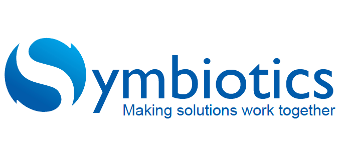With great flexibility comes great responsibility
 We empower our team members to take the initiative wherever possible as this not only contributes towards their personal growth but also radiates trust. Having one person holding all the power is a practice of the past. For organisations to progress, grow and survive they must exercise flexibility to adapt. Our Spiderman principle discusses this concept.
We empower our team members to take the initiative wherever possible as this not only contributes towards their personal growth but also radiates trust. Having one person holding all the power is a practice of the past. For organisations to progress, grow and survive they must exercise flexibility to adapt. Our Spiderman principle discusses this concept.
By creating a culture of empowerment, our staff have more flexibility through autonomy. When managers empower their staff, they become motivated knowing that they are directly responsible for the achievement of organisational goals. We feel that to be flexible, remain competitive and relevant, management must lead people to lead themselves.
We found an extract from a book on organisational behaviour which directly resonates with our culture.
Empowerment consists of the following:
- Authority that is delegated from those who have positional power to the lowest possible level within the organisation or society
- Increasing accountability among the lower levels
- Developing problem-solving capabilities in the people at these levels
- Assisting these people to take charge of their own destinies
- Helping all these to achieve their full potential
- Having the positive impacts of empowerment spill over into the entire lives of these people”
Flexibility gives people greater autonomy and input in the decision-making process. Like anything in life, the more involvement you have, the greater your commitment. Take a look at the dictionary definition of flexibility – it is: “the ability to be easily modified/a willingness to change or compromise.” Without flexibility, a culture of empowerment cannot exist. Systems and processes must be non-restrictive – just like a Spidey suit. Management must flatten structure and web-out responsibilities.
We believe that empowering our staff increases their job satisfaction, self-confidence and performance. Lessons of empowerment are flexible. By this, we mean that they aren’t only applicable to the work environment. Empowering our staff gives them the skills to take more responsibility in their own lives and assume more accountability for their actions. Staff become more confident in their abilities and become motivated to tackle more challenging tasks and cast their webs further. Through increased accountability, they exercise integrity, respect and caring.
Flexibility and empowerment offer the following benefits:
- Things happen faster. Having more people with important responsibilities allows employees to get on with tasks without having to report to a superior
- There is more innovation. Occasionally, too many people involved in decision making is messy. Other times, those empowered propose suggestions and better ways of doing things.
- Staff complete tasks properly. Employees who know that they may be held directly responsible for the outcome of their efforts ensure that they fulfil their duties as best as possible.
- There is greater customer satisfaction. Customers can deal with the person directly responsible for a task. In extremely centralised companies, customers must wait for ages for a response from the person directly responsible.
- Trust is an extremely important factor in empowerment. Those empowering others must trust newly empowered employees to carry out tasks effectively. This fosters a culture where everyone trusts everyone else in the organisation.
Empowering individuals contributes to their personal growth. Their responsibilities increase and they need a whole new skill set which leaders must acknowledge. This creates a culture of lifetime learning – not only for the empowered but also for those leaders empowering others. This includes learning about how to let go of power, learning how to handle new responsibilities, learning to be accountable, learning new skills and learning tolerance and flexibility to treat others with integrity, respect and caring at all times.


